Holly Johnson - Interview
by John Clarkson
published: 14 / 11 / 2014
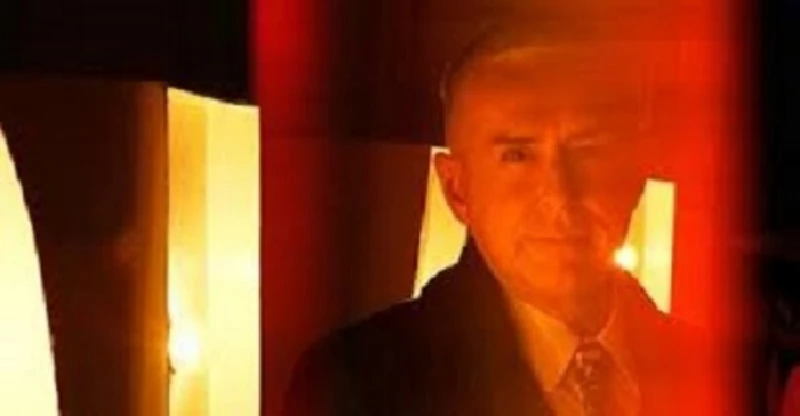
intro
Ex-Frankie Goes To Hollywood front man Holly Johnson speaks to John Clarkson about ‘Europa’, his first solo studio album in fifteen years
Holly Johnson, the former front-man with Frankie goes To Hollywood, has just released ‘Europa’, his first solo album in fifteen years. After playing bass in local punk act Big in Japan and releasing two solo singles on the label of the short-lived but infamous music club Eric’s, Johnson formed in his native Liverpool Frankie Goes To Hollywood in 1980. While Johnson and backing vocalist and dancer Paul Rutherford were openly and flamboyantly gay, its other three members, the laddish Brian ‘Nasher’ Nash (guitar), Mark O’ Toole (bass) and Ped Gill (drums), were in contrast all heterosexual. Frankie Goes to Hollywood first attracted public notoriety when, still an unsigned group, they appeared in February 1983 on the Channel 4 music programme, performing their song, ‘Relax’. Shortly afterwards they became the first act to sign to record producer Trevor Horn’s ZTT label. ‘Relax’ was released as a first single. The band had both performed ‘Relax’, the previous week on ‘Top of the Pops’ and it had reached number 6, when in early January 1984 the BBC infamously decided to ban it because of the sexual nature of its sleeve and its lyrics which were about gay sex. In the ensuing media storm, ‘Relax’ shot to number one and stayed there for the next five weeks. Frankie Goes to Hollywood’s second single, ‘Two Tribes’, proved almost as controversial. About the threat of nuclear war, it came accompanied by a Godley and Crème video in which actors impersonating the then United States and the Soviet Union’s presidents, Ronald Reagan and Konstantin Chernenko, battled it out in an arena while the band members placed bets on the outcome. It shot to number one, while ‘Relax’ climbed back to number two. The group finished 1984 as the bestselling act in Britain that year with two more number ones, the first for their double album debut LP, ‘Welcome to the Pleasuredome’, and the second for the single, ‘The Power of Love’. Frankie Goes To Hollywood’s second album, ‘Liverpool’, which came out in 1986, however, fared less well. While ‘Rage Hard’, the first single from it, reached number 4, other singles from it performed badly, only barely scraping into the Top 20. The album, which got to no. 5, was a commercial disappointment, and was also critically mauled. Frankie Goes To Hollywood broke up early the following year, when Johnson decided to leave the band and to start a solo career. Johnson met with further success with his early solo career. His debut solo album, ‘Blast’, which came out on MCA Records, reached no.1 in 1989, and its singles, ‘Love Train’ and ‘Americanos’ also got to into the Top 10. His two subsequent solo albums, ‘Dreams That Money Can’t Buy’ (1991) and ‘Soulstream’ (1999), both of which came out on his own Pleasuredome label, however, did not chart. After ‘Soulstream’, Holly Johnson enrolled at art school, which he had originally planned to attend before Frankie Goes To Hollywood took off. He spent four years at the Royal College of Art in London, where he both painted and exhibited, and has since had his paintings displayed at both the Royal Academy in London and the Tate in Liverpool. ‘Europa’, which has been released on Pleasuredome, is an upbeat-in-tone synth pop album. It opens with the soaring ‘Follow Your Heart’ in which Johnson forces himself upwards out of apathy and depression. Other tracks include the equally jubilant ‘In and Out of Love’; the cinematic, immense-in-sound title track; beautiful love song ‘Glorious’ and ‘You’re In My Dreams Tonight’, a balladic tribute to a dead friend. Pennyblackmusic spoke to Holly Johnson about ‘Europe’, and its lengthy recording which involved composer Vangelis, Kirsty MacColl and Roxy Music guitarist Phil Manzanera. PB: It has been many years since your last album. Did you see yourself as having retired from music or was it always your intention to come back? HJ: I never, ever said that I was retiring, although people had assumed that was the case. I was looking on iTunes once, and someone had written a sort of potted biography of Frankie Goes To Hollywood. It said, “Holly Johnson now works as a painter and has retired from music,” and I thought, “That is news to me” (Laughs). Although I was painting and I had gone back to art college for a few years and switched creative forms for a while, people just presumed that was the case without me actually saying anything. I was still writing songs in the background and I suppose I was waiting for the muse to strike, which it eventually did. I was dragged back into the whole thing again when a compilation (‘Frankie Says Greatest’) came out in 2009 and I was asked to promote it. PB: Why did you decide to promote this compilation album over others? There have been a lot of other Frankie Goes To Hollywood compilations in the past which you have not been involved with. HJ: This one was licensed to Universal, and someone at Universal had my phone number because he had used to work for MCA Records in the late 1980s when I was signed to them. He said, “If we bid for this, the rights to this ‘Greatest Hits’, will you support us in that bid and help us to promote it?” and I said, “Oh, well, wait a minute there. You have got several solo albums of mine which haven’t seen the light of day for fifteen years, and if you reissue those I will be happy to support you in that.” They did bid for it, and I did a lot of work for them. I did lots of interviews around it and travelled to Germany to do some TV shows. but the result of that was two albums, my debut solo album ‘Blast’ – that had gone to number one in 1989 – and the less successful ‘Dreams That Money Can’t Buy’ which originally came out in 1991, were reissued. I had three albums available on iTunes and Amazon, so I felt that I existed again as a solo artist. PB: You went from that to headlining the Rewind Festival, didn’t you? HJ: I did in 2011 much to my surprise. I had made odd other performances on stage and television over the years, but performing a full set with a live band was a different story and that was the first time that I had done that in some time. I really enjoyed it, and then I did a few other festivals, including one in Germany, and I enjoyed those too. So, I went from that to starting looking at some songs that I had written previously and also some new songs, and I thought, “I think I have got an album here somewhere.” Then I met through a mutual friend, my co-producer Mark Ralph, and I took a track to him, ‘Follow Your Heart’, and said, “This needs remixing or something.” I had never felt that I had got it right. I was really happy with what he had done, and that was the start of our collaborative production/relationship. He has a studio in Queen’s Park in London where he has a recording desk built by Conny Plank, and that was where we recorded the bulk of the album. PB: You recorded the album using vintage synths, didn’t you? HJ: He has lots of vintage synths and I have quite a few of my own, and we would combine them together in the studio. I could only get Mark for a few days a month because he is much in demand, and he was busy working with Hot Chip, Franz Ferdinand and Clean Bandit and so on. I would have very long days in the studio with him to maximise the time. We would both end up recording long into the night. PB: How long did it actually take to record the album? HJ: It was two and a half years. There was a time as well when Mark disappeared to L.A. and that put the album back by about six months which was very frustrating for me, so it wasn’t all smooth sailing. I did enjoy working with him though. The result of that is I am releasing an album in October instead of March and May, which would have been a lot better because it is all so ridiculously competitive at this time of year. PB: ‘Europa’ is a very euphoric and upbeat. You’re a self-confessed “misery guts”. Has it taken you by surprise how happy it is? HJ: It has to a degree, but I have always had two sides to me. I can get very miserable. I am introspective, and as a result of that when I am writing a song most of the time I try to write songs that cheer me up. People have mistaken this for me trying to give advice to other people in songs, and that is not really the case. I am trying to get behind myself and shake myself out of the sort of the default misery that I fall into, especially in the long winter months when we have got very little light in this country. I get really, really miserable. I sit there for hours in front of one of those bright lights and hope for the best (Laughs). A lot of artists can be like that though. I have never been diagnosed as being bipolar or anything like that, but I tend to be like many of us a bit moody. ‘Follow Your Heart’ was definitely written that way, and so was ‘In and Out of Love’. ‘In and Out of Love’ took its focus from by a poem by William Blake, ‘Broken Love’. There is a line in it that I took from that, “And throughout all eternity/I forgive you, you forgive me,” and I built it around that idea. PB: The title track was co-written with Vangelis. You started work on that track many years ago. How did that collaboration come about? HJ: I first met Vangelis in 1990. I was summoned by his assistant Andrew to the Hotel Plaza Athenee in Paris, which is in the Avenue Montaigne where Marlene Dietrich’s flat was, and where Vangelis was living at the time. He had already sent me this music on a DAT, which we all used at the time, and I had had an idea for the song, so he then took me to an underground bunker in the Bois de Boulogne called the Studio Mega where he had all his incredible collection of synthesizers laid out. He told me that this bunker was earmarked for the use of Adolf Hitler during the occupation of Paris in World War 2. I don’t know if it was a story to scare me or whether it was true. I really didn’t care (Laughs), but certainly being in this bunker, coupled with the fact that the Berlin Wall had just come down, dictated the atmosphere of this track. It has got a real element of Berlin-era Bowie in there. PB: How long were you there with him for? HJ: It was just a weekend trip to Paris, and while I was in the bunker Roman Polanski turned up, who was his mate, with his wife Emmanuelle Seigner. Roman said, “I am going to direct the video,” and Emmanuelle said, “I am going to dance in it.” It was a bit surreal really (Laughs), this Liverpudlian transformed into this world of ‘Blade Runner’ composers and internationally famous film directors. It was just all a bit too much really, but after I had flown home on the Sunday or the Monday it was as if it hadn’t happened. It was like a dream. I didn’t hear anything more from them, and the only proof that I had of it was this little DAT tape with Studio Mega written on it, which I came across again about two years ago while looking for songs for the album. I played it to Mark and we ended up re-recording it. It took me a long time to find out where Vangelis was, which I did through Cherry Vanilla, who was once David Bowie’s attaché. I knew her as a singer actually. She came and played Eric’s Club in the late 1970s. Anyway she had become Vangelis’s PR and called her PR company Europa bizarrely because she had heard this song and liked it. I thought, “Well, that is an omen,” and she put me in contact with him again, and finally about the end of May I pinned him down and we had a day in the studios in another studio in the Bois de Boulogne. This time it was, however, called Studio Omega which he used a lot. It was with the same engineer who did the original sessions, and we had a night in the studio. That was really the last piece of the jigsaw for the record for me. PB: The album also features Phil Manzanera from Roxy Music on guitar on several tracks. How did he become involved? HJ: Roxy Music was the second concert that I saw at the Liverpool Empire in the 1970s when I was a teenager, the first being David Bowie at the same venue on the ‘Ziggy Stardust’ tour. I was a big fan. I met Phil in 1999 during the taping of ‘Loose Ends’, the BBC Radio 4 programme, and I sat next to him and discovered what a lovely bloke he was. When I was recording with Mark, he said, “Phil Manzanera’s studio is just a block down the road,” and I thought, “Oh my God. Wouldn’t it be amazing if we got Phil Manzanera to play on the record?” so I contacted him, and he said, “Oh yeah, just give me a CD and I will work on it at leisure in my studio,” He did a load of stuff and gave it back to us, and said, “Use whatever you want and discard the rest.” He actually played on most of the album, so that is how that occurred. PB: If you look at the credits of this album, one of the people you have thanked is Kirsty MacColl. Why did you include her in the credits? HJ: Kirsty was my friend, and I have a very few friends in the music industry. She was a friend that I treasured, and it was very sad for me and a lot other people to lose her. The original chorus of ‘Glorious’ was “Comes from heavens above/It is the glory of love,” and I played it to Kirsty which was what we used to do. She would play me her demos and I would play her my demos, and she said, “Oh, I am not sure about that. I think there is a Lou Reed song with the chorus “the glory of love” (‘Coney Island Baby’-Ed). Why don’t you make it “it’s a glorious love” instead?” That was my way of saying thank you to Kirsty. I have said thank you to some of my other friends who have passed away, including Frankie Knuckles, the house producer, who died in March and did a remix of ‘Follow Your Heart’. PB: ‘You’re in My Dreams Tonight’ is about a friend who died of AIDS. Who was he? HJ: His name was Ged Parker or Gerard Parker, and he was born the day before me on February 8th. My birthday is February 9th, and we were very close friends from about the age of eighteen and when I first met him in Eric’s Club. I guess you could say that i was in love with Ged. We had a friendship that was at times intimate but then it became just a platonic friendship. During the 1980s I lost a lot of friends, Ged being closer than anyone else to me. He appeared to me in a dream one night after he died, and put his arms around me and said, “Everything is going to be alright,” so that is what that song is about. It is quite an intimate song. PB: Did you lose all these friends to AIDS? HJ: Some died of other things as well, overdoses or whatever, but, yeah, that definitely happened to a lot of my extended family. PB: Brian Nash described the Frankie Goes To Hollywood era to us, as to quote him, as being “like going to a party in 1984 and coming home in 1987.” Do you remember it that way or with so many of your friends becoming ill and dying do you have a different take on it? HJ: I can’t really comment on what other people have got to say as I obviously wasn’t them, but I had done most of my partying before Frankie Goes To Hollywood. Some people had to get up in the morning to do a radio interview or breakfast television or whatever, so it wasn’t a party for me. It was work for a lot of it. PB: You were also one of the first big stars to be open about being gay in the 1980s and then again about having HIV in the early 1990s. Do you think that it would have been so easy to come out if you had been on a major label rather than an independent label? HJ: I was always open about my sexuality long before I signed to any label. It didn’t ever occur to me to be otherwise. That was just who I was. It is possible should I have been signed to another label that I would have been advised by PRs to be otherwise, but I can’t really say because I wasn’t really. I do remember one thing in relation to this though. MCA did some sort of market research on me during the ‘Blast!’ campaign (Laughs). I thought that was quite an odd thing to do, and one of the questions they asked people was about my sexuality. They did tell me at one point during that campaign that people didn’t like it if you talked about it too much (Laughs). I don’t think that I ever talked about it too much. I never beat people over the head with it. I think that was their way of saying that they wanted me do was to brush it under the carpet. I think that does go on. I don’t really want to name names but there were several artists during the 80s who were signed to major labels and in the closet. You may have a valid point. MCA was the only major-ish label that I was signed to. PB: The 80s in particular were still fairly homophobic times. The other side of that is, however, by just being what you were a lot of people who were uncertain about things perhaps were as a result a lot more comfortable about asserting their sexuality. HJ: I do get letters from people saying exactly that. “You made me feel that it was alright.” Although to be honest with you, I wasn’t walking around with that thought in my head. “I am making it alright for generations” (Laughs). I was just being a mouthy Scouser from Liverpool. PB: You have got your first major tour coming up rather than one-off dates since Frankie Goes To Hollywood days. What can fans expect from that? HJ: Well, it is not that major. It is four dates. It is major for me though (Laughs). I have said that I would perform songs from my entire background, so that includes Frankie Goes To Hollywood and my Holly Johnson back catalogue also, so the ‘Hits and More’ is perhaps a way of putting it. PB: And finally what are you going to be doing after that? What are you plans for the future? HJ: God knows (Laughs). I know that I have got another single coming in and that I am going to Germany in December to do some dates, so in my head I have planned that I will be quite busy up until Christmas. Then I am going to take a break then and take stock and see how I feel at that point. It all depends on if the album and the shows are successful and if people feel good about it. I find the music business is quite a difficult industry to navigate. I have always found it a struggle, and I don’t like to count my chickens before they are hatched. I would like to make more records and I would like just to continue to perform, but you just have to wait and see if a strong wind takes your sails and blows you along really. I have been in the doldrums before and I know what that it like. I will make every effort not to end up there again, but you just don’t know really. PB: Thank you. Holly Johnson will be at The Library Institute in Birmingham on October 19th, The Auditorium in Manchester on October 22nd, The Academy 2 in Manchester on October 25th and KOKO in London on October 28th. More information can be found at www.hollyjohnson.com.
Article Links:-
http://www.hollyjohnson.comBand Links:-
http://www.hollyjohnson.comPicture Gallery:-
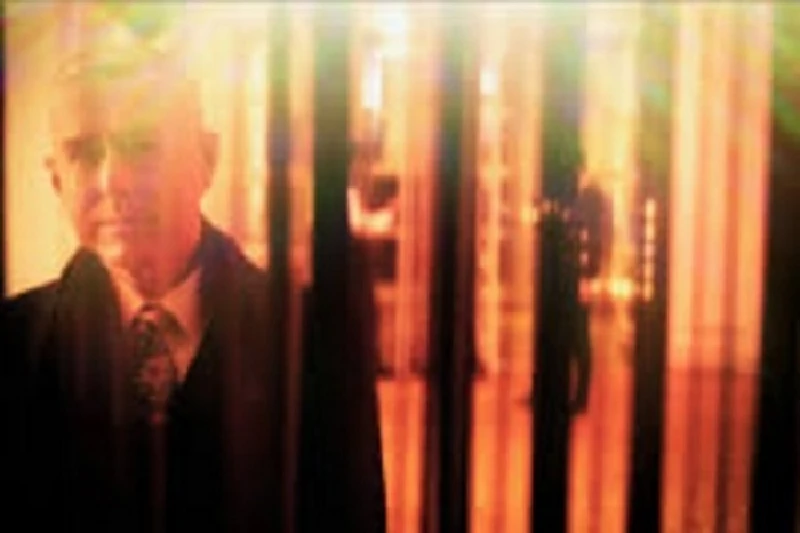
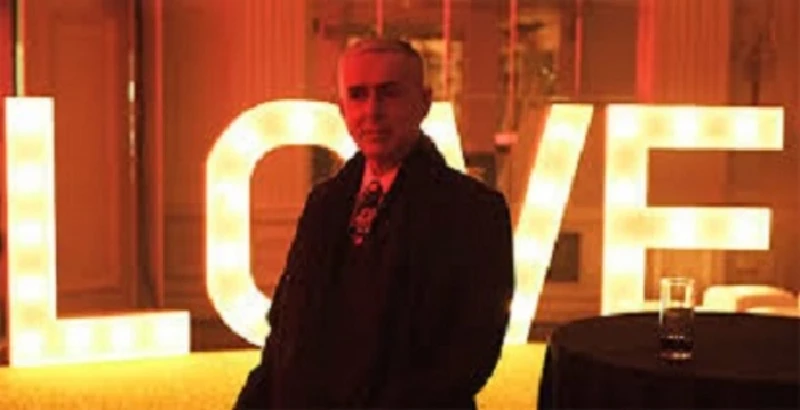
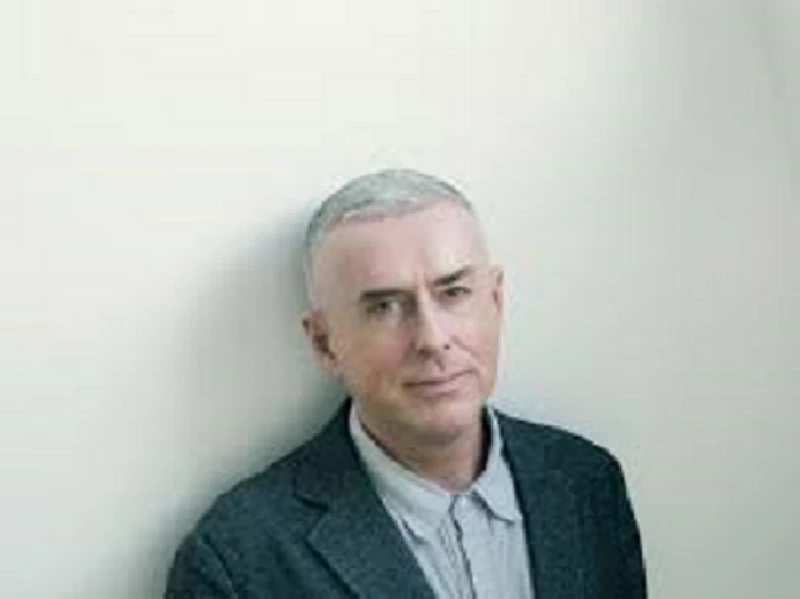
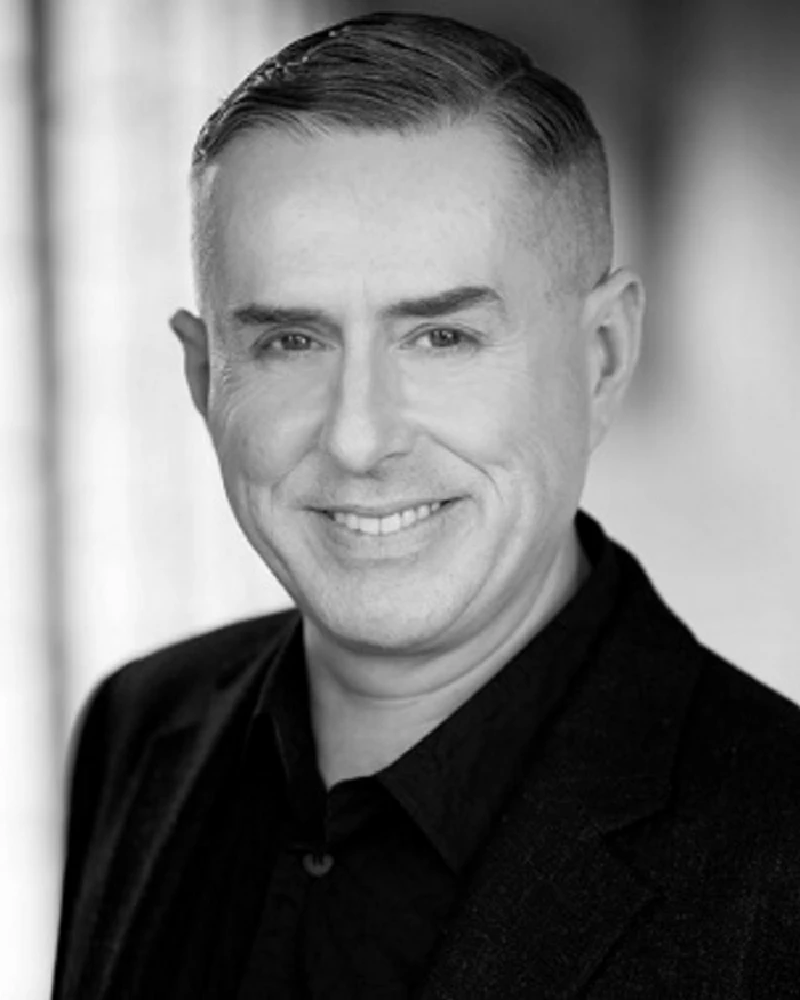
photography |
|
Photoscapes 1 (2024) |
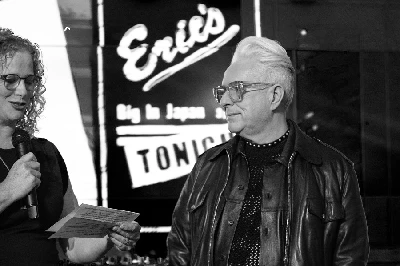
|
| Andrew Twambley writes of and photographs thew new Holly Johnson Exhibition in LiverpooL. |
most viewed articles
current edition
John McKay - InterviewCathode Ray - Interview
Robert Forster - Interview
When Rivers Meet - Waterfront, Norwich, 29/5/2025
Spear Of Destiny - Interview
Fiona Hutchings - Interview
Carl Ewens - David Bowie 1964 to 1982 On Track: Every Album, Every Song
Chris Wade - Interview
Shrag - Huw Stephens Session 08.12.10 and Marc Riley Session 21.03.12
Brian Wilson - Ten Songs That Made Me Love...
previous editions
Heavenly - P.U.N.K. Girl EPBoomtown Rats - Ten Songs That Made Me Love....
Manic Street Preachers - (Gig of a Lifetime) Millennium Stadium, Cardiff, December 1999
Allan Clarke - Interview
Oasis - Oasis, Earl's Court, London, 1995
Barrie Barlow - Interview
Beautiful South - Ten Songs That Made Me Love...
Pixies - Ten Songs That Made Me Love...
Chuck Prophet - Ten Songs That Made Me Love...
Dwina Gibb - Interview
most viewed reviews
current edition
Peter Doolan - I Am a Tree Rooted to the Spot and a Snake Moves Around Me,in a CircleVinny Peculiar - Things Too Long Left Unsaid
Garbage - Let All That We Imagine Be The Light
Vultures - Liz Kershaw Session 16.06.88
John McKay - Sixes and #Sevens
Little Simz - Lotus
HAIM - I Quit
Pulp - More
Lapsley - I'm a Hurricane, I'm a Woman In Love
Billy Nomates - Metalhorse
related articles |
|
Holly Johnson: Interview (2014 |

|
| Ex-Frankie Goes To Hollywood front man Holly Johnson speaks to John Clarkson about ‘Europa’, his first solo studio album in fifteen years |
Pennyblackmusic Regular Contributors
Adrian Janes
Amanda J. Window
Andrew Twambley
Anthony Dhanendran
Benjamin Howarth
Cila Warncke
Daniel Cressey
Darren Aston
Dastardly
Dave Goodwin
Denzil Watson
Dominic B. Simpson
Eoghan Lyng
Fiona Hutchings
Harry Sherriff
Helen Tipping
Jamie Rowland
John Clarkson
Julie Cruickshank
Kimberly Bright
Lisa Torem
Maarten Schiethart